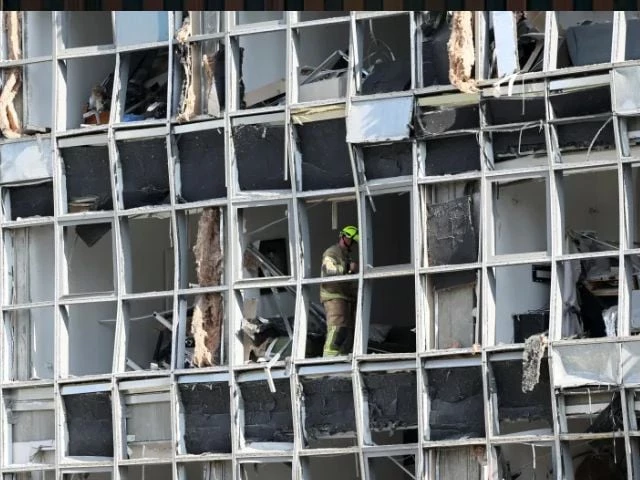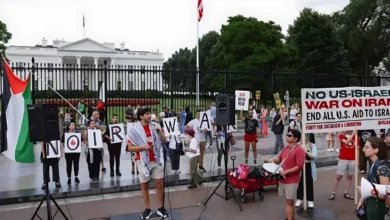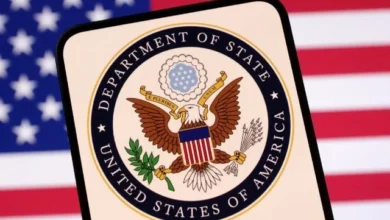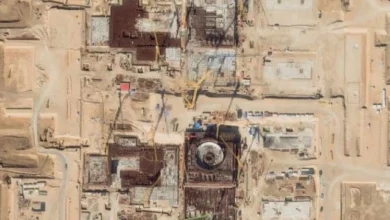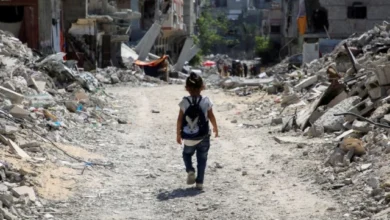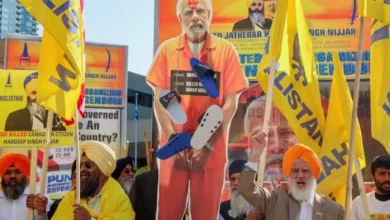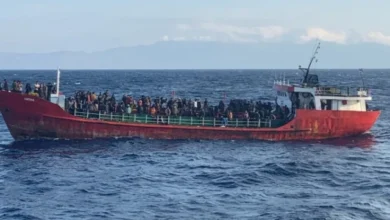Israeli Defence Minister Israel Katz on Thursday said Iran’s Supreme Leader Ayatollah Ali Khamenei ‘cannot continue to exist’, following a wave of Iranian missile strikes including one that struck near the Soroka Medical Centre in Beersheba.
Touring the impact site in Holon, Katz declared, “A dictator like Khamenei, who has made the destruction of Israel his mission, cannot continue to exist.”
Katz said the Israel Defense Forces (IDF) had been instructed accordingly and drew parallels between the current situation and the Holocaust. “If the State of Israel and the IDF had existed during the Holocaust, we would have gone into Hitler’s bunker and eliminated him. Khamenei is the modern Hitler,” he said.
“The Prime Minister and I have directed the IDF (army) to escalate the intensity of strikes against strategic targets in Iran and governmental targets in Tehran to neutralize threats to the State of Israel and undermine the Ayatollah regime,” Katz said on his official X account.
Prime Minister Benjamin Netanyahu also vowed that Iran would “pay the price” for its precision missile strikes targeting military facilities in central Israel early on Thursday.
According to Israeli public broadcaster KAN, some 20-30 Iranian missiles hit Tel Aviv, Ramat Gan, and Holon, as well as Soroka Hospital in the southern city of Beersheba.
Iran’s state news agency IRNA reported that the missiles targeted the headquarters of the Israeli army and intelligence service near Soroka Hospital and that the blast wave caused injuries at the hospital.
At least 65 Israelis were injured in the new wave of missile strikes, according to Israeli authorities.
UN watchdog fails to act as Israel attacks nuclear facilities in violation of international law
In a statement published by state media IRNA on Thursday, Iran’s Atomic Energy Organisation said the attack struck both the Khondab research reactor and the adjoining heavy water complex.
Iran also revealed that repeated warnings had been submitted to the International Atomic Energy Agency (IAEA) about potential Israeli threats, but claimed the UN’s nuclear watchdog had taken no action to prevent the attacks.
Esmaeil Baqaei, spokesperson for Iran’s Foreign Ministry, publicly condemned IAEA Director-General Rafael Grossi. In a post on X (formerly Twitter), Baqaei accused Grossi of “obscuring the truth” in a report he said was biased and exploited by Western powers.
“This is too late, Mr Grossi,” Baqaei wrote. “You obscured this truth in your absolutely biased report … used by E3/U.S. to craft a resolution with baseless allegation of ‘non-compliance’.” He claimed that this resolution gave a “genocidal warmongering regime” the pretext to wage a war of aggression and attack Iran’s peaceful nuclear facilities.
EU foreign ministers to hold meeting with Iranian counterpart
The planned meeting, pending final confirmation from Tehran, could be the first high-level Western-Iranian contact since Israeli Prime Minister Benjamin Netanyahu launched attacks on Iran, if approved.
On the other hand Araghchi, who spoke to his European counterparts via phone earlier this week, has so far declined to meet Donald Trump’s special envoy to the Middle East, Steve Witkoff. He has cited ongoing Israeli attacks — allegedly sanctioned by Washington — as the reason. “It is impossible to engage while under assault,” Araghchi said.
Discussions on Friday are expected to focus on Iran’s nuclear programme and potential limitations. Tehran has signalled willingness to reduce its nuclear activity but insists it will not surrender unconditionally.
Posting late Wednesday on social media, Araghchi maintained that Iran was acting in self-defence. “Iran has proven in action what it has always publicly committed itself to: we have never sought and will never seek nuclear weapons,” he wrote. He stressed that Iran remains open to diplomacy — excluding any talks with Israel.
Israel claims interception of Iranian drones
Israeli media reported that Iran has launched approximately 1,000 drones toward Israel since the conflict erupted on June 13. Channel 12 News said fewer than 200 of those drones reached Israeli territory, and none hit their intended targets.
The latest exchange follows warnings from Iran’s Supreme Leader Ayatollah Ali Khamenei, who said any US strikes on Iranian territory would have “serious irreparable consequences”.
Speaking to reporters outside the White House on Wednesday, President Donald Trump declined to say if he had made any decision on whether to join Israel’s air campaign. “I may do it. I may not do it. I mean, nobody knows what I’m going to do,” he said.
While no final decision has been announced, Trump confirmed that security consultations were ongoing with Israeli leadership.
Amid rising tensions, the US embassy in Qatar restricted access for American personnel to the Al Udeid Air Base, the largest US military installation in the Middle East. A public advisory urged heightened vigilance, citing “an abundance of caution”.
Japanese survivors of 1945 atomic bombings condemn Israeli attacks
The strike drew condemnation from Nihon Hidankyo, the Nobel Peace Prize-winning organisation representing survivors of the 1945 atomic bombings of Hiroshima and Nagasaki.
In a statement published by Japan’s Jiji Press, the group expressed “strong indignation and anxiety,” calling for an immediate ceasefire. “Attacks on nuclear facilities should never be tolerated,” they said, adding that the world must learn from the tragedies of Hiroshima and Nagasaki and reject weapons of mass destruction entirely.

